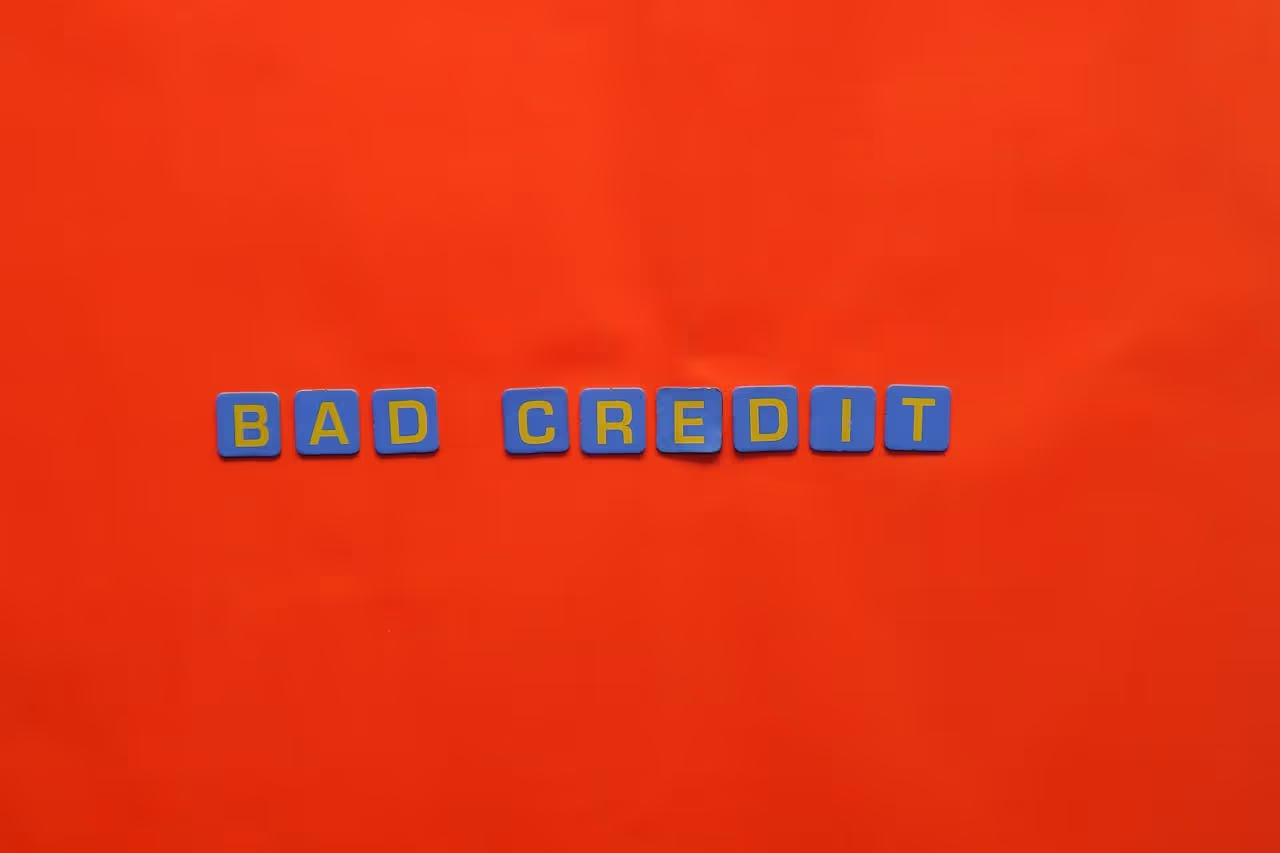Negotiating dealer financing
Negotiating dealer financing? It's not only possible, it could save you a pretty shocking amount. So many folks just assume the interest rate or loan terms from a dealership are set in stone, but dealers usually have wiggle room to adjust rates and terms to fit you—if you ask.
Dealerships don’t just make money selling you the car. Their finance department is a profit center, too, marking up interest rates or tossing in extras you might not need.

If you walk in knowing your credit score and already have a pre-approved loan, you’re in a much better spot to negotiate. It’s also smart to be aware of those classic dealer tactics—avoiding them can keep you from making an expensive mistake.
Key Takeaways
You can negotiate interest rates and loan terms with dealers.
Getting pre-approved and knowing your credit score gives you leverage.
Watch out for add-ons and long loan terms—they can sneak up on you.
Can You Negotiate Dealer Financing?
Dealer financing is convenient, but that ease can come with a price. The good news: you can negotiate the interest rate and loan terms to lower your costs.

Understanding how dealer financing really works—and how dealers profit—can help you keep more money in your pocket.
How Dealer Financing Works
When you apply for a loan at the dealership, they shop your application to several lenders. Each lender sends back interest rates, called "buy rates," and the dealer picks which one to show you.
But here's the catch: dealers often mark up the interest rate above the buy rate. That markup is their profit, so the rate you see may be higher than what the lender actually charges them.

Lenders look at your credit score, income, down payment, and loan term to set their rate. Dealers package up all this info and often try to sell loans at a premium. You can negotiate to cut that markup or get better terms.
Common Misconceptions About Dealer Financing
Some people think dealer financing is always the best deal since it’s right there. But honestly, it’s rarely the lowest rate you can get. Don’t just accept the first offer—compare around.
Negotiation isn’t just for the car price. Interest rates are up for discussion, too. If you ask for a lower rate or better terms, you might be surprised by what’s possible.
Even with a preapproved loan, it’s still worth talking to the dealer about rates. Sometimes they’ll beat or match outside offers if you push a little.
Understanding Dealer Profits on Financing
Dealers make money off the difference between the buy rate and the rate they sell you—the "spread" or "dealer reserve."
Say a lender offers a 5% buy rate. The dealer might quote you 7% and pocket the 2% difference. Over time, that adds up.
Dealers sometimes get bonuses for arranging financing, so they’re motivated to keep those rates high. If you know about this, you can ask for a rate closer to the buy rate, or show them competing offers to get a better deal.
Preparing to Negotiate Dealer Financing
Going in prepared is half the battle. You want to know the car’s real value, your financing options, and have your paperwork ready.

Researching Vehicle Market Values
Before talking financing, know what the car’s actually worth. Tools like Kelley Blue Book and Edmunds are your friends—they’ll give you price ranges based on the car’s make, model, year, mileage, and condition.
Check several sources and compare wholesale and retail prices. If the dealer’s price seems padded, it might be to cover higher finance costs. Knowing trade-in values also helps.
With clear price expectations, you can keep the negotiation focused on the big picture, not just the monthly payment. Separate the price and financing for the best shot at a fair deal.
Securing Pre-Approved Financing
Get pre-approved for a loan from a bank or credit union before you even walk in. This gives you a baseline for rates and terms, and shows the dealer you have other options.
Apply to a few lenders to compare offers and set a ceiling for what you’re willing to accept. Pre-approval also speeds things up and lets you negotiate the car price first, then circle back to financing.
Gathering Essential Documentation
Bring your paperwork: proof of income, proof of residence, employment info, and a valid ID. It just makes everything go smoother.
Check your credit report before you go. Fix any errors so you know where you stand—your score can seriously affect your interest rate.
Have info on your debts and monthly expenses, too. Lenders use this to calculate debt-to-income ratios, which can impact your loan approval and terms.
Key Negotiation Strategies for Dealer Financing
Negotiating dealer financing well can save you a bundle over the life of your loan. The main things? Get better interest rates, keep price and financing talks separate, watch for hidden fees, and use outside offers as leverage.
Negotiating Interest Rates and Loan Terms
Start by knowing your credit score and what typical rates banks or credit unions are offering. That’s your benchmark.
Ask the dealer for specific rates and loan terms—length, monthly payments, all of it. Remember, longer loans mean lower payments but more interest paid in the end.
If the dealer’s rate is higher than you expected, ask for a break or see if a bigger down payment helps. Also, decide if you want a fixed or variable rate—pick what fits your budget and nerves.
Splitting Price and Financing Discussions
Don’t let the dealer bundle price and financing into one conversation—it’s a classic move to confuse you. Settle on the car’s price first, then talk loans.
Once you’ve nailed down the price, you can focus on getting the best financing terms. This way, the dealer can’t sneak in higher costs by adjusting the loan details.
Recognizing Hidden Fees and Dealer Markups
Dealers love to tack on extra fees or bump up finance rates. Comb through the contract for “processing fees,” “documentation fees,” or “dealer markups.”
Ask for a breakdown of every fee. If something looks fishy or unnecessary, question it—don’t just let it slide.

Dealers sometimes add a higher interest rate than their lender offers. Ask for the base rate and compare it to your outside offers. Push back on markups and fees—you might be surprised how much you can save.
Using Competing Offers for Leverage
Before you set foot in the dealership, get pre-approvals from banks or credit unions. These offers give you real numbers to work with.
Show these competing offers during negotiation. It puts pressure on the dealer to beat or at least match them.
If the dealer won’t play ball, be ready to walk out and use your outside loan instead. Having several quotes shows you’re serious—and that you know the game.

Managing Add-Ons and Additional Products
Dealerships will try to sell you extras—sometimes they’re useful, but often they’re just pricey add-ons. Look at each one with a skeptical eye and decide if it’s actually worth the money.

Evaluating Extended Warranties
Extended warranties pick up where the factory warranty ends. Check what’s already covered before considering one. Sometimes they just duplicate coverage or have so many exclusions they’re not worth it.
Prices vary a lot, so shop around. Read the fine print—see what’s actually covered. If you’re worried about expensive repairs, maybe it’s worth it, but don’t just say yes because they push hard.
Assessing GAP Insurance and Other Add-Ons
GAP insurance covers the difference if your car gets totaled and you owe more than your insurance pays. It’s handy if you put little down or have negative equity, but check if your auto insurance already has it.
Other stuff like paint protection, VIN etching, and rustproofing are usually overpriced at the dealership. You can get most of these services elsewhere for less. Ask for prices on each add-on separately and think hard about what you actually need.
Negotiating Add-On Pricing Separately
Dealers love to bundle add-ons to boost their profits. Ask to negotiate each one by itself—don’t let them lump it all together.
Don’t be afraid to walk away from add-ons that don’t offer real value. Tell them you’ll buy the car but not the extras, or only pay for what you actually want. Stand your ground and avoid unnecessary charges.
Timing and Situational Tactics
When and how you negotiate can make a real difference. Sometimes it’s all about timing, knowing what motivates the dealer, and not being afraid to walk out if you need to.

Optimal Times to Negotiate
End of the month or quarter? That’s prime time. Dealers are hustling to hit sales targets and might be more flexible.
Weekdays and mornings are usually quieter, so you’ll get more attention and less pressure. Shopping when new models arrive can also give you an edge.
Understanding Dealer Incentives
Dealers get bonuses from manufacturers for selling certain models or meeting sales goals. These incentives can open up more room for negotiation on financing.
Some incentives push dealers to funnel buyers into their own financing. Knowing this, you can question their offers and compare with outside loans before signing anything.
Utilizing the Power to Walk Away
Your strongest move? Be ready to walk out if you don’t like the deal. Dealers want the sale, so showing you’re not desperate can get them to sweeten the offer.

Don’t mention right away that you’ll definitely use their financing. Keep them guessing until the price is set—it keeps you in the driver’s seat.
Finalizing the Deal and Legal Protections
Once you’re finalizing dealer financing, slow down and check every piece of paperwork. Make sure what you were promised is what’s written, and know your rights. This step is where you catch any last-minute surprises.

Reviewing the Financing Contract
Read every line of the contract before you put pen to paper—loan amount, interest rate, monthly payment, loan term, every fee. Ask for a breakdown so you know exactly what you’re paying for.
If there’s a privacy policy or cookie policy, skim it so you know how your info will be used. Don’t rush—catching a mistake now is way easier than fixing it later.
Ensuring Terms Match Verbal Agreements
Anything the dealer promised you? It needs to be in writing. Check that discounts, incentives, and your agreed interest rate are all spelled out in the documents.
If you said no to extras like warranties or service plans, make sure they’re not lurking in the contract. Double-checking here keeps you from getting stuck with stuff you didn’t want.
Consumer Protection Laws and Disclosure Requirements
Laws require dealers to clearly show you the total loan cost, APR, and any penalties (like prepayment fees). They also have to give you documents about your rights and how your data will be used.
Knowing these rules means you’ll spot anything shady or misleading. Don’t hesitate to ask questions or walk away if something feels off.
Frequently Asked Questions

Dealer financing—it's a jungle out there, but you can figure it out if you know where to look and what to ask. Timing matters, and so does knowing what the dealer is actually up to behind the scenes.
If you're about to buy used, or just want to keep more cash in your pocket, a little prep goes a long way. Some of this stuff isn't rocket science, but it sure feels like it when you're sitting across from a salesperson with a big smile and a lot of paperwork.
Is it possible to negotiate auto loan rates with a credit union?
Absolutely, and honestly, it's a smart move. Credit unions usually have lower rates than the average dealership, and they're not as obsessed with squeezing out every penny of profit.
If you compare offers and bring them proof of better deals, you might get them to budge even more. They're member-focused, so it doesn't hurt to ask.
Can interest rates on car loans be negotiated after the initial purchase?
Honestly, that's a tough one. Once you've signed on the dotted line, those rates are usually set in stone.
Still, if you're not happy with what you got, refinancing with another lender later is an option. It takes some paperwork, but it can save you money if rates drop or your credit improves.
How do you go about renegotiating a car loan interest rate?
Start by calling your lender and just asking. Sometimes, if your credit's improved or you've found better rates elsewhere, they'll listen.
But more often than not, refinancing is the real path to a lower rate. It's not always easy, but if the numbers work, why not?
Is it feasible to renegotiate the terms of a car loan after the contract is signed?
Not really, at least not in most cases. Once you've signed, lenders don't usually want to mess with the terms.
You could try talking to them, but usually, it's about paying off the loan early or refinancing if you want to change things up.
What techniques should you be aware of at a dealership, such as the 'four square' trick?
Watch out for the “four square” tactic. Dealers split up the negotiation into price, trade-in, down payment, and monthly payments—sounds simple, but it's a classic move to keep you off balance.

Don't let them distract you—negotiate each part one by one, and keep your eye on the total cost. It's your money, after all.
What are some strategies for negotiating used car prices with a dealership?

Start by digging into the market values before you even set foot on the lot. You'd be surprised how much power a little research gives you.
When you’re talking numbers, zero in on the total price—dealers love to distract you with those monthly payments, but that's not the real story.
Take your time and really inspect the car for any issues. If something feels off or the price just isn’t right, don’t be afraid to walk away.

Honestly, showing up with cash or having your own financing sorted out can make you look way more serious—and it might just nudge the price in your favor.





